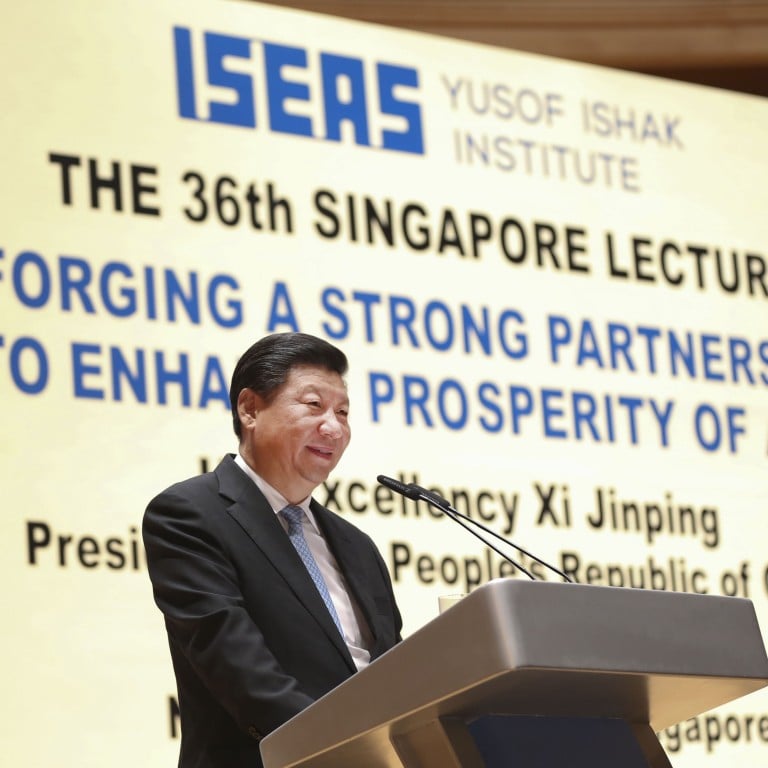
China will always ensure freedom of navigation in South China Sea, Xi says
Disputes over contested waters should be solved by the nations directly involved, Chinese president says in speech at National University of Singapore
China will always ensure freedom of navigation and flight in the South China Sea, but disputes over the contested waters should be settled only by the countries directly involved, Chinese President Xi Jinping said on Saturday.
In a veiled reference to the United States, he stressed that Beijing was committed to a peaceful resolution with “countries with a direct stake in the issue”.
Others “from outside the region” were welcomed to have a positive influence on peace and development in Asia, Xi said in a speech at the National University of Singapore.
His comments came after Washington sent a guided-missile destroyer last month within 12 nautical miles of Beijing’s expanded Subi Reef, which forms part of the disputed Spratly Islands.
The US Navy said the move was aimed at underlining the principle of freedom of navigation, but the People’s Liberation Army called it a provocation.
In his hour-long address, Xi said: “Right of passage or flight has never been a problem and will never be a problem, because China needs the freedom of passage in the South China Sea the most.”
Beijing claims almost the entire sea as its territory, but faces competing demands from Vietnam, the Philippines, Malaysia, Taipei and Brunei.
Xi repeated Beijing’s position that the sea, which carries US$5 trillion in ship borne trade every year, had belonged to China since ancient times.
“Though some islets over which China has sovereignty have been occupied by others, China has always been committed to solving the problem by peaceful negotiations,” he said.
He has maintained a conciliatory tone in the second leg of this Southeast Asian tour, which also took him to Vietnam.
Both Beijing and Hanoi agreed to maintain maritime peace as Xi stressed their common communist heritage and the ties between the founding leaders from both sides.
The visit could lead to “some short-term positive impact” on Sino-Vietnamese relations, said international relations analyst Li Mingjiang from the S. Rajaratnam School of International Studies in Singapore.
Xi’s two-day visit to the city-state, where he met Taiwanese leader Ma Ying-jeou for historic talks, also gave him a platform to address concerns within the regional Asean bloc over China’s growing might, said observer Chen Gang from Singapore’s East Asian Institute.
“Singapore has always been an important channel for China to better understand Southeast Asian countries’ positions on many international issues, including the South China Sea disputes,” he said. “Singapore is neutral and shares a similar culture with China, which makes Singapore a good mediator in cross-strait affairs and South China Sea issues.”
Xi stressed the importance of Asians solving Asia’s problems, an argument he has consistently pursued since taking over China’s leadership in late 2012.
He urged the region’s countries to work together for peace and counter security and environmental threats. Asian states should also focus on deepening an Asian identity.
China’s neighbourhood remained a top priority, he said. “We have a responsibility to ensure peace, stability in this neighbourhood.”

